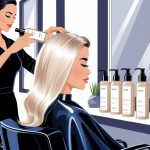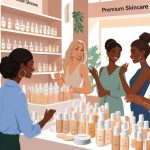Facial Serum Claims Now Under Scrutiny as Dermatologists Warn Busy Shoppers
Dermatologists’ Key Warnings for Shoppers

If you believe any serum is “clinically proven” just because the box is shiny, slow down. Most of that is marketing. I watch people in Sephora grab whatever’s trending, then post “transformation” videos on TikTok with products even dermatologists can’t pronounce. It’s just noise. Testimonials everywhere, never any context.
Recognizing Marketing Overpromises
I keep reading stuff like “miracle anti-aging,” “instantly reduces fine lines,” “dermatologist recommended.” What does that mean? Nobody regulates this. I checked the FDA’s 2020 list—tons of warning letters, most ignored. The whole thing is wild.
Big brands know we trust them, so they sneak in claims like “serum with active botanicals” when it’s basically just scented goo. Testimonials? Half are paid, let’s be real. “Non-comedogenic” sounds official, but there’s no standard. I’d pay extra if someone just told the truth. If hyaluronic acid could fix my mood, I’d buy a gallon, but there’s no study for that.
Spotting Misinformation on Social Media
The beauty aisle? It’s TikTok now. Everyone’s an expert, which is terrifying. Some 11-year-old posts a “routine,” suddenly we’re all layering retinoids, vitamin C, and snail slime. By the time dermatologists warn people—like Dr. Emma Craythorne did about under-18s using strong stuff—the trend’s gone. “Before and after” videos? No filter warnings. I see people using acid peels way too strong for anyone’s face. A British expert said kids need real info, not hype, and I wish someone would listen. Social media just amplifies the nonsense. Most of it’s unregulated, at best.
Importance of Realistic Expectations
Look, I’m not getting sponsored for this—serums only do so much. No matter what the ads say, you’re not erasing ten years overnight. I know people who quit after three weeks, mad that their peptide serum didn’t fix their dark circles. Even pharmacy clerks roll their eyes. Dr. Tess McPherson keeps saying: nothing beats genetics, sleep, or diet. People panic-buy without reading the label; half the time, stuff made for adults ends up in kids’ baskets. Real results are slow, sometimes invisible. SPF matters more than any serum, but nobody wants to hear it.
Potential Health Risks and Safety Considerations
Trying to guess what’ll irritate my skin or mess me up long-term feels impossible. Every “gentle” formula claims to be safe, but Dr. Neera Nathan said over half the serums she tests have known allergens or irritants. I can’t pronounce half the ingredients, either.
Identifying Irritation and Allergens
Last time I used a serum with “natural” citrus extract, I ended up with a red patch above my eyebrow—super cute for Zoom calls. Most people don’t know the EU flagged 26 fragrance allergens, but U.S. brands barely mention them. I read a 2024 study—over half of rinse-off products had a top fragrance irritant. Face or hands, didn’t matter.
Still, everyone I know wants their serum to smell “clean” or “luxury,” which makes no sense. It’s usually synthetic or essential oils, both risky. Sulfates aren’t common in serums, but they sneak into face washes and can bring in by-products like 1,4-dioxane (look it up, it’s not great). Nobody’s regulating serums like food or drugs. Best advice I got from a dermatologist: if it says “fragrance” or “parfum,” assume it’ll irritate someone, eventually.
Safe Usage for Sensitive and Dry Skin
Marketing always promises “hydrating” or “for sensitive skin,” but I’ve lost count of “gentle” serums that made me sting. My skin gets dry and cranky every winter. Dr. Alexis Stephens said “hypoallergenic” isn’t regulated, and only true fragrance-free, sulfate-free stuff lowers risk—especially if your skin barrier is already a mess.
I always check for coco-glucoside or decyl glucoside instead of harsh sulfates, skip denatured alcohol, and avoid citrus oils pretending they’re calming. Most safety tests only catch immediate reactions. No one warns you about issues that show up after months. EWG’s Skin Deep is helpful, but even their “green” picks have made me peel. Seriously, moisturize first and patch test behind your ear—every time—if your skin is as unpredictable as mine.
How to Choose the Right Serum for Your Needs
What’s wild is how brands hype serums like they’re actual magic. All that limited edition packaging, but the real differences? Good luck finding them. Picking one that won’t waste my money or break me out is basically a game: figure out what you want to fix, ignore the marketing, and squint at the ingredients. Most people quit as soon as they see “niacinamide complex.”
Matching Formulas to Skin Concerns
Anti-wrinkle claims first. “Peptides erase wrinkles in two weeks”—show me the receipts. Dr. Meena Singh said, “Peptides need consistent, long-term use—at least 12 weeks.” And so many “hydrating” products are just alcohol bombs. For dry skin, I go for hyaluronic acid, but only if it’s at least 2%. Don’t trust the tiny blue bottle just because an influencer said it’s good.
If you’re acne-prone, don’t fall for “radiant skin in a bottle” if it’s loaded with oils that’ll clog you up. Salicylic acid at 0.5–2% helps, but too much vitamin C can burn. My friend tried four “brightening” serums—only the fragrance-free one survived past week two. It’s always a guessing game. Most serums under $50 give you small, visible improvements if you actually match the formula to your skin’s mood that week, not what’s trending.



